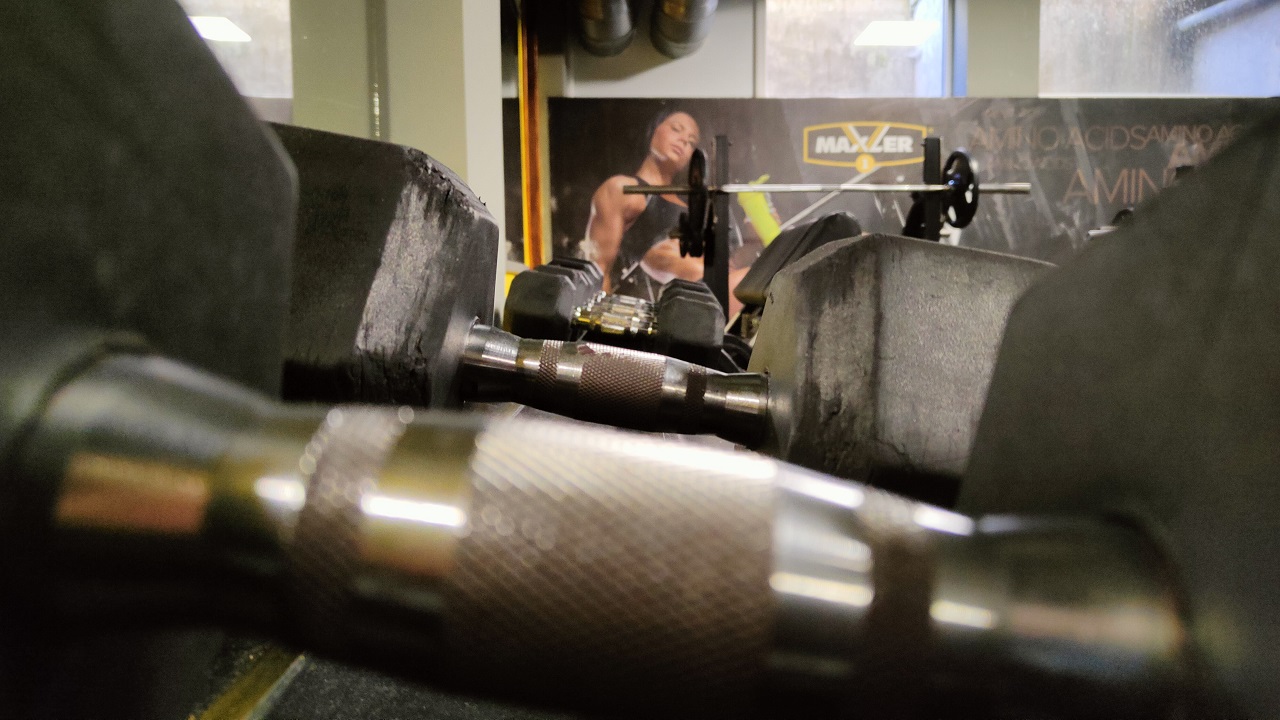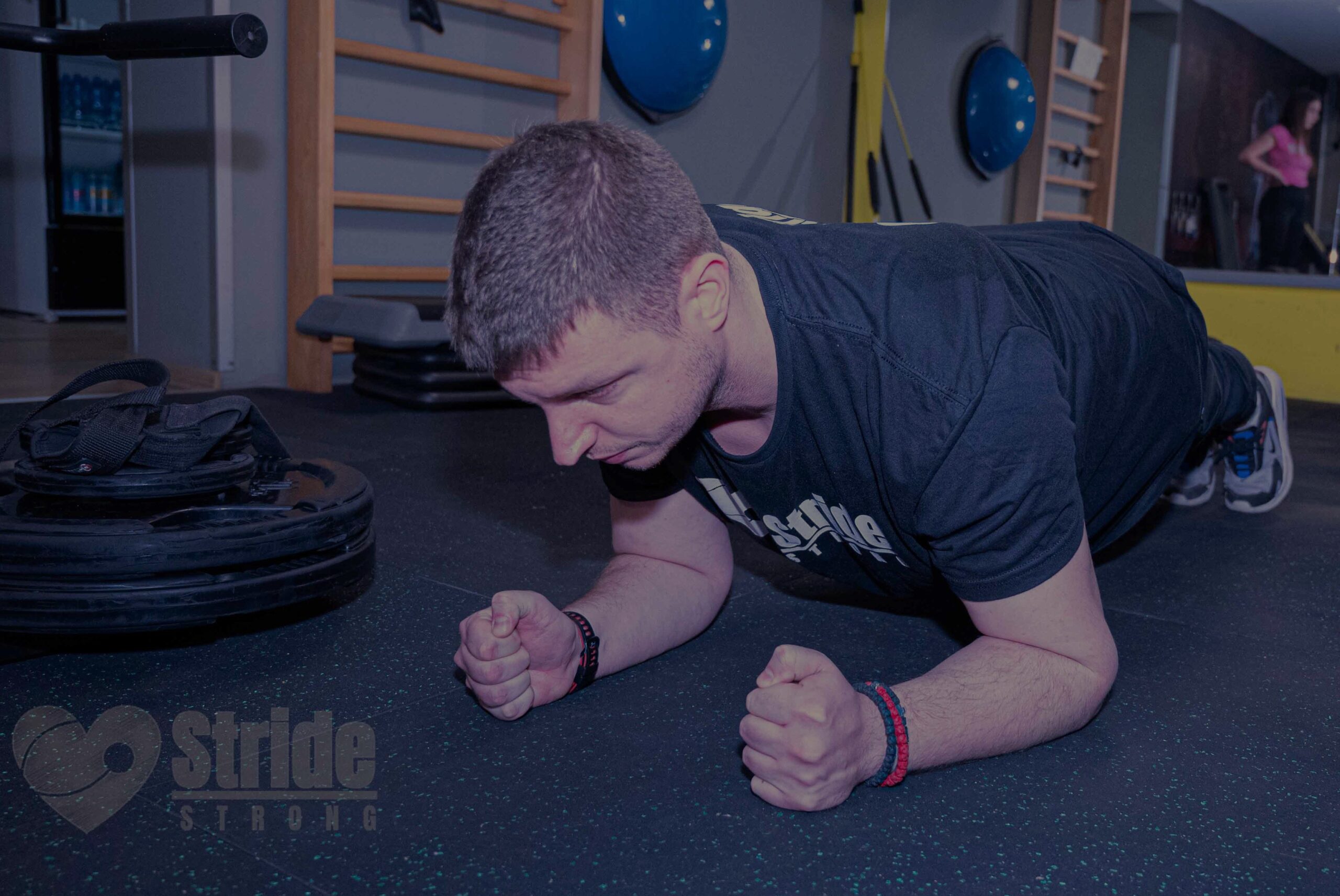Barbells have been a part of my gym arsenal for many years. But updating the arsenal is a must, don’t you agree? I decided to test out dumbbells.
I must say I liked them quite a bit, still, I do not think they are superior to barbells.
Let me provide you with a comparison of these two items found in practically every gym, but many still refrain from using at least one of these.
Showing the Ropes
Barbells have been a cornerstone in my training regimen, especially when it comes to heavy lifting.
These are long bars that can be loaded with weight plates to suit the required resistance for different exercises.
I particularly favor barbells for compound movements—those that involve multiple muscle groups and joints.
- Squats
- Bench presses
- Deadlifts
are almost exclusively done with barbells in my routine.
The stability and uniformity of weight distribution that barbells offer make them ideal for not only ensuring proper form but also for pushing the limits of strength by adding substantial weights.
On the other hand, dumbbells are small, handheld weights that are typically used in pairs. The beauty of dumbbells lies in their flexibility and adaptability.
Each dumbbell can be moved independently, allowing a greater range of motion and variation in exercises.
I often turn to dumbbells when I want to target specific muscle groups or when I’m focusing on muscle isolation exercises.
- Bicep curls
- Tricep extensions
- Shoulder presses
Allow to concentrate on each side of my body individually, ensuring that one side isn’t compensating for the other, which can happen with barbells.
Dumbbells are indispensable for exercises that require twisting or unilateral movement, enhancing coordination and muscular balance.
Barbells
Barbells have consistently proven to be an indispensable tool in my strength training arsenal, particularly when stability is crucial.
Barbells offer a versatile and effective workout by allowing for heavier lifts, promoting balanced muscle development, and enabling compound exercises that engage multiple muscle groups simultaneously, unlike dumbbells.It is especially true during heavy lifts, where maintaining control and form is essential to prevent injury and ensure effective muscle engagement.
The design of a barbell, with its long, solid bar, allows weight to be distributed evenly across both hands.
The symmetry is what gives me the confidence to load up substantial weight when I’m tackling big compound movements.
For squats, the barbell sits snugly across the shoulders, providing a secure point of contact that helps me maintain a straight posture as I descend and ascend.
The setup minimizes the risk of imbalance and ensures that the load is evenly shared between both legs.
In deadlifts, the barbell allows me to align my hands just outside my knees, creating an optimal setup for lifting the weight vertically in a smooth, controlled motion.
This alignment helps engage the correct muscle groups—primarily the glutes, hamstrings, and lower back—efficiently and safely.
Similarly, for bench presses, the barbell provides a stable platform that enables me to press significant weights.
A research conducted by Tom Erik Jorung Solstad and his team tells us that the barbell bench press activates the pectoralis major, anterior deltoids, and triceps brachii to a significantly greater extent compared to dumbbell flyes.
This suggests that the barbell bench press is more effective for training these muscles due to the higher overall muscle activation.[1]
The findings of this study have helped me. I continued with this approach and I can only sing praises.
The ability to add weight incrementally on each side of the bar also helps in gradually increasing the intensity of my workouts, which is crucial for progressive overload and muscle growth.
Dumbbells
The design of dumbbells—small, individual weights with a handle between—allows me to manipulate my movements across various planes, which is something that isn’t as feasible with barbells or fixed-weight machines.
The freedom of movement is essential for exercises that require a dynamic range of motion, such as lateral raises, flyes, or rotating presses.
Each of these exercises can be performed in ways that challenge my muscles from different angles, promoting a more comprehensive muscle engagement.
For instance, when performing alternating bicep curls, each arm works independently, requiring my body to engage stabilizing muscles to maintain balance and symmetry.
The independent movement helps in identifying and correcting any imbalances in muscle strength or coordination, leading to a more symmetrical development.
| Feature | Dumbbells | Barbells |
|---|---|---|
| Type of Weight | Handheld weights, typically used in pairs. | Long bars loaded with weight plates. |
| Flexibility | High flexibility for a wide range of motion. | Less flexible, suited for linear or less varied movements. |
| Muscle Targeting | Ideal for targeting specific muscle groups. | Best for compound movements involving multiple muscles. |
| Range of Motion | Allows movement across multiple planes. | More restricted to specific planes of motion. |
| Stability | Requires more balance and coordination. | Provides greater stability, especially with heavy loads. |
| Load Capacity | Generally lower weight capacity compared to barbells. | Suitable for heavier loads. |
| Exercise Examples | Bicep curls, shoulder presses, lunges. | Squats, deadlifts, bench presses. |
| Skill Level | Suitable for all levels, including beginners. | Requires more technique, better for intermediate users. |
| Space Requirement | Requires minimal space, easy to store. | Requires more space for storage and use. |
| Cost | Generally more affordable and accessible. | Can be more expensive due to the need for additional gear. |
| Muscle Imbalance | Helps correct muscle imbalances by working limbs separately. | Can mask muscle imbalances due to bilateral movement. |
| Safety | Safer for solo workouts, lower risk of injury with lighter weights. | Higher risk with heavy weights, often requires a spotter. |
Muscle Activation and Symmetry
When I lift dumbbells, each side of my body works independently, which is great for identifying and correcting any strength imbalances between my left and right sides.
However, when it comes to really maximizing muscle growth, I find barbells to be superior.
Using a barbell allows me to load more weight than I can with dumbbells.
Both hands work together to keep the bar stable, enabling me to lift heavier and really push my limits.
The heavier I go, the more my muscles have to step up, especially when I’m tackling those compound exercises that hit multiple muscle groups.
Safety and Accessibility

Barbells allow you to load significantly more weight than dumbbells, which is essential for progressive muscle growth.
They do require mastering the right technique and occasionally the help of a spotter to ensure safety, especially with heavier loads.
For those looking to advance their training and build substantial strength, investing time in learning how to properly use barbells can be incredibly beneficial.
Exercise Variety and Training Goals
When it comes to choosing between dumbbells and barbells, your training goals are key.
Both offer unique benefits, but barbells often take the lead, especially for compound exercises.
Dumbbells are fantastic for targeted exercises, allowing you to focus on individual muscles and address imbalances by training one side of the body at a time.
This can be especially useful for honing in on specific areas or correcting asymmetry.
However, barbells are unbeatable for compound movements. They enable you to engage multiple muscle groups simultaneously, making your workouts more efficient and impactful.
When it comes to heavy hitters like squats and deadlifts, barbells are essential.
They allow you to load up the weight and really challenge your strength, helping you to make significant gains in muscle mass and overall power.
For anyone serious about boosting their strength training, barbells are a must-have in their exercise arsenal.
The Verdict
The barbell is generally superior for building strength and muscle, particularly for those looking to improve power, like powerlifters and runners.
It’s ideal for strength training at an advanced level, where lifting heavier weights for fewer reps can activate the fast-twitch muscle fibers needed for explosive movements typical in heavy lifting. I prefer them overall.
Still, dumbbells are effective for muscle and strength building, especially if you’re new to lifting, recovering from an injury, or focused on maintaining your strength. Also, I trully love their versatility, as I’ve mentioned earlier.
REFERENCES
- Solstad TE, Andersen V, Shaw M, Hoel EM, Vonheim A, Saeterbakken AH. A Comparison of Muscle Activation between Barbell Bench Press and Dumbbell Flyes in Resistance-Trained Males. J Sports Sci Med. 2020 Nov 19;19(4):645-651. PMID: 33239937; PMCID: PMC7675616.












